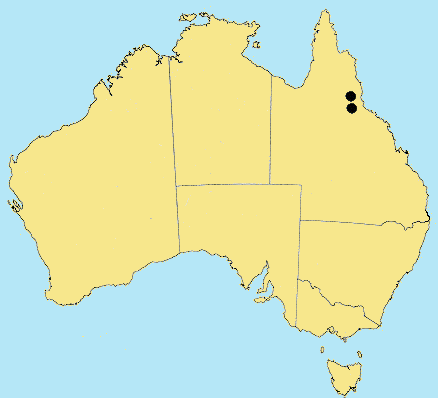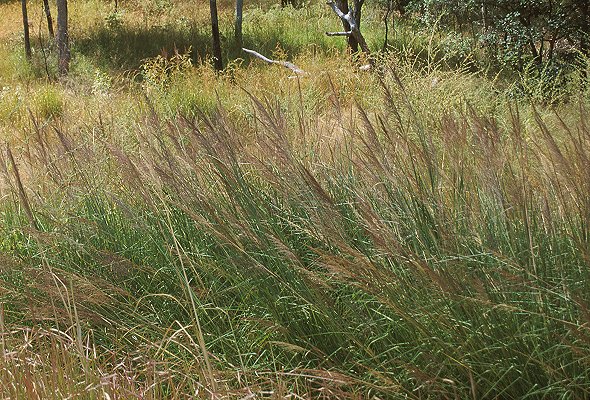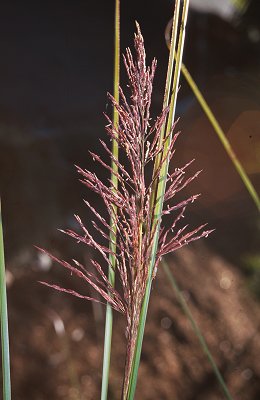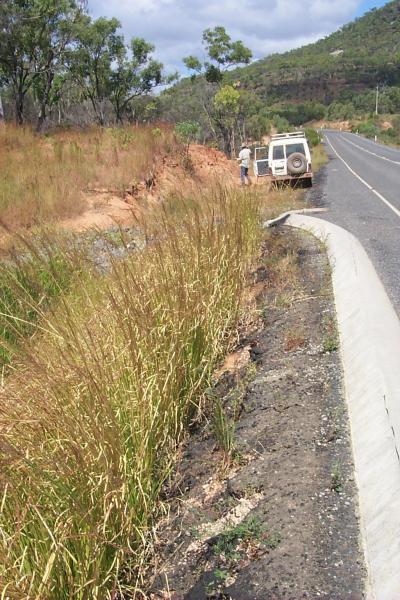Chrysopogon zizanioides* (L.)Roberty. Bull.Inst.Franc.Afr.Noire 22:106(1960).
Classification. (GPWG 2001) : Subfamily Panicoideae. Andropogoneae.
Basionym and/or Replacement Name: Phalaris zizanioides L., Mant. Pl. 2: 183 (1771).
Type of Basionym or Protologue Information: India:, Koenig s.n. (LT: LINN-78.12)
Key references (books and floras): [2002] D.Sharp & B.K.Simon, AusGrass, Grasses of Australia.
Habit. Perennial. Rhizomes present, short. Culms 150–300 cm tall. Ligule a fringe of hairs. Leaf-blades 30–100 cm long, 4–10 mm wide.
Inflorescence. Inflorescence compound, a panicle of rames. Panicle lanceolate, 15–40 cm long. Rhachis fragile at the nodes.
Spikelets. Spikelets sessile, 1 in the cluster. Companion spikelets pedicelled, 1 in the cluster. Companion spikelets developed, male, symmetrical. Companion spikelet glumes muticous. Fertile spikelets 2-flowered, the lower floret barren (rarely male), the upper fertile, comprising 1 basal sterile florets, comprising 1 fertile floret(s), without rachilla extension, linear, laterally compressed, 7.5–9.5 mm long.
Glumes. Glumes dissimilar, firmer than fertile lemma. Lower glume oblong, coriaceous, without keels, 5 -nerved. Upper glume lanceolate, chartaceous, keeled. Upper glume apex muticous. Florets. Basal sterile florets 1, barren, without significant palea. Lemma of lower sterile floret 100 % of length of spikelet, hyaline, 2 -nerved.
Fertile lemma 2–3 mm long, without keel, 0 -nerved. Lemma apex entire, muticous. Palea 0 -nerved, without keels. Anthers 3.
Continental Distribution: Africa, Temperate Asia, Tropical Asia, Pacific, North America, and South America.
Australian Distribution: Queensland.
Queensland: Cook.






